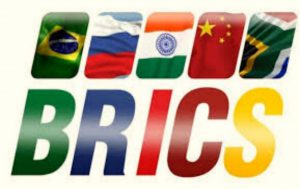NEW DELHI DECLARATION ON EDUCATION
Following is the text of NEW DELHI DECLARATION ON EDUCATION adopted in the 4th Meeting of BRICS Ministers of Education in New Delhi, on September 30, 2016.
We, the BRICS Ministers of Education and assigned representatives of the Federative Republic of Brazil, the People’s Republic of China, the Republic of India, the Russian Federation and the Republic of South Africa,
Having met in New Delhi, the Republic of India on September 30, 2016 to discuss and coordinate areas of mutual interest and develop framework for future cooperation in the field of education,
Following the discussions in the meeting of the BRICS Ministers of Education on November 18, 2015 under the Chair of the Russian Federation and guided by the Moscow Declaration,
Committed to the SDG4 and corresponding targets set within ‘The 2030 Agenda for Sustainable Development’ and the ‘Education 2030 Framework for Action’ which serve as the overall guiding framework for the implementation of the Education 2030 agenda,
For ensuring deeper cooperation among the Member States,
Hereby declare to:
1.Reiterate our commitment to SDG4 which aims to “Ensure inclusive and equitable quality education and promote life-long learning opportunities for all” and the ‘Education 2030 Framework for Action’, which serve as the overall guiding framework for the implementation of the Education 2030 agenda;
2. Initiate actions to formulate country-specific targets within the broader scope of the SDG4 and corresponding targets, taking into account the past gains and achievements in the education sector, emerging national development priorities, availability of resources, and institutional capacities; integrate the SDG4-related targets with the national and subnational-level education sector development plans/programmes; and build capacity at the national and subnational levels for measuring and monitoring progress towards SDG4 and corresponding targets using the indicators adopted by the UN General Assembly in September 2016;
3. Reaffirm the need for universal equal access to quality education, including secondary and higher education, technical and vocational education and training, and lifelong learning opportunities for all;
4. Share the best practices available in BRICS countries on collaboration in education, research and innovation through the BRICS Network University.
5. Organize an annual conference of the BRICS Network University in the country of the current BRICS Chair;
6. Encourage more universities to participate in the BRICS University League to facilitate student mobility and collaborative research;
7. Expand technical and vocational education and skills development programmes, for facilitating acquisition of skills and competencies by young people and adults for enhancing their employability and encourage innovation and entrepreneurship;
8. Strengthen coordination within the BRICS TVET Working Group to: (a) develop national reports, (b) share experiences relating to workforce demands and supply of skilled personnel in BRICS member countries, (c) undertake skill gap analysis in consultation with industry/employers for designing TVET programmes, (d) study skill qualification framework in different countries and draft a BRICS TVET qualification framework, and (e) undertake studies to evaluate outcomes of TVET interventions and suggest policy responses. The Working Group will meet at least once a year.
9. Use information and communication technologies (ICTs) for improving access to education, enhancing the quality of teaching-learning process, teacher development, and strengthening educational planning and management;
10.Identify a nodal institution within each country and create an institutional network to share ICT policies, Open Educational Resources and other e-resources, including e-Libraries, among BRICS member countries;
11. Share information on higher education systems, approval and recognition processes, quality assurance and accreditation, and prevalent procedures and practices for evaluation and recognition of qualifications to facilitate academic mobility; may also consider subsequently to constitute an expert group to work towards the development of a framework for mutual recognition of qualifications across BRICS countries;
12. Facilitate mobility of students and scholars, and encourage exchange of teaching faculty, especially those working in the areas relating to the six domains identified for cooperation within the BRICS Network University;
13. Develop an enabling framework to promote research cooperation and knowledge transfer among BRICS countries in collaboration with other BRICS initiatives;
14. Encourage active involvement of the participating universities in the BRICS-NU;
The Federative Republic of Brazil, the People’s Republic of China, the Russian Federation and the Republic of South Africa extend their appreciation to the Government of India for hosting the 4th meeting of the BRICS Ministers of Education.
Ministry of Human Resource Development

